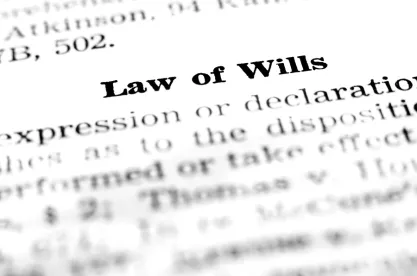Although many of us have estate plans well in advance of the time that we pass, it is not uncommon for an individual to die without having a last will and testament. This can often happen if the person who passes is younger, the death happens at an unexpected time, or is due to an unexpected event. Under such circumstances, it may be discovered that the decedent did not have any estate plans, nor a last will and testament. As such, the question becomes how to distribute the decedent’s assets to any surviving heirs or family members.
When a person passes without having a last will and testament or any estate plans, this is referred to as an intestate estate. Under such circumstances, the relevant intestacy statute within the state of New Jersey, as well as essentially every other state in the nation, governs precisely how the decedent’s assets will be distributed.
With regard to assets that have beneficiary designations, these specific assets would pass pursuant to the beneficiary designations set forth in each particular asset. These may involve life insurance policies, retirement accounts, or investment accounts. If these type of assets do not have a beneficiary designation, then they would become part of the decedent’s estate. Another common asset that may pass outside of the decedent’s estate may be a parcel of property that the decedent owns, if he/she owns it with another party.
Assets of the decedent which pass through an estate are subject to the intestate statute as discussed above. This statute is fairly complex in nature, and thus, must be carefully reviewed in order to ensure compliance. Much of the statute depends upon whether the party who passed was married, had children, had surviving parents, or had surviving siblings.
In general, the decedent’s spouse and children would take precedence over all other potential heirs. The situation becomes more complex, however, if the decedent had children with more than one individual. Further, it can also become complex if the decedent did not have a surviving spouse or children, but has a combination of surviving parents and siblings.
Therefore, it is recommended, under these circumstances, that an attorney be retained to ensure proper compliance with the statute. Even under an intestate estate, an individual has to be appointed as an executor to administer the estate. The executor is tasked with the proper distribution of the estate, and thus, can be subject to liability if the intestate statute is not followed. For these reasons it is strongly suggested that an executor retain an attorney to ensure proper administration of an estate.



 />i
/>i
